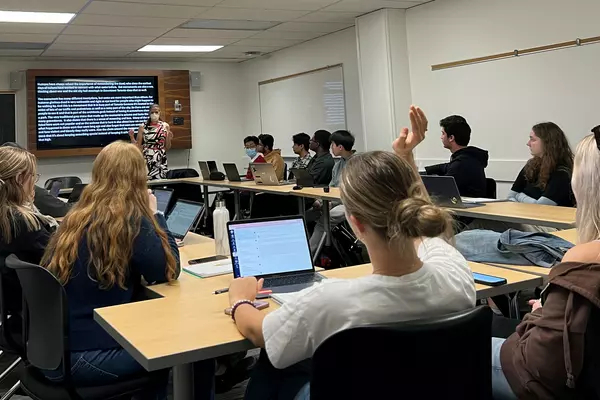Welcome to the American Studies Undergraduate Program
As an American Studies student, you can attend a top-ranked research university while building networks with faculty and peers in small, interdisciplinary classes and events featuring internationally renowned scholars.
The American Studies Undergraduate Program, housed within the Centre for the Study of the United States (CSUS), is right for you if you are excited to learn from and with students and faculty in a truly interdisciplinary environment. Our small and topical core American Studies courses allow you to engage intellectually with a changing world and to ask, “what is America, to who, and how can we study it?” If you are passionate about approaching topics through international relations, geography, political science, history, cinema studies, our courses in these and other affiliated departments make this program an excellent fit for you.
Through engaging colloquiums, public lectures and conferences on and a fully student-led undergraduate journal, you have countless opportunities to learn from exceptional academics and gain skills that you can use to excel in all your future endeavours.

"The ability to unpack the unseen layers across multiple disciplines is something I learned from American Studies"
— Khushi Nansi, Minor in American Studies, ‘21
Learn more

QUESTIONS ABOUT THE AMERICAN STUDIES UNDERGRADUATE PROGRAM? WE ARE HERE TO HELP.
SOPHIE BOURRET-KLEIN
Events and Program Coordinator, Centre for the Study of the United States




